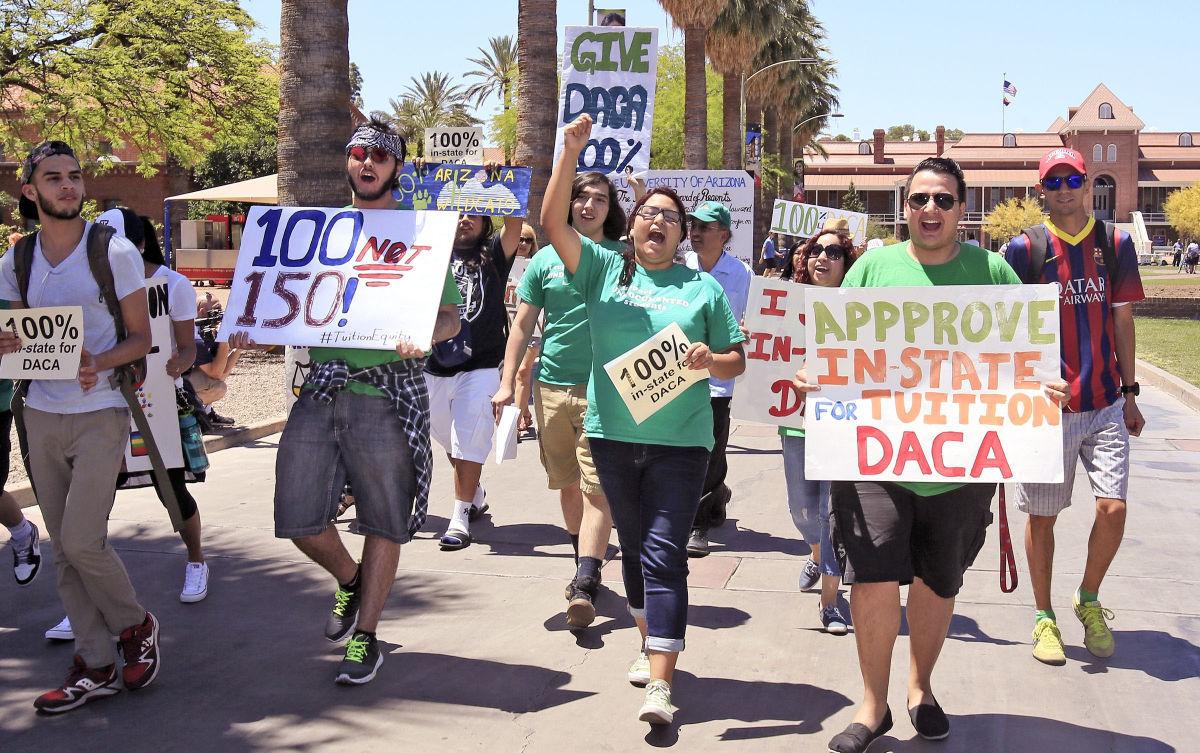PHOENIX — “Dreamers” are here legally and entitled to the same lower tuition as other Arizona residents, an attorney for the state’s largest community college system is arguing.
Mary O’Grady is asking the state Court of Appeals to dismiss a claim by state Attorney General Mark Brnovich that the Maricopa Community College District is violating a voter-approved law that says only legal residents get in-state tuition. She told the judges that the decision by the Obama administration to allow Dreamers — undocumented immigrants brought here as children — to stay and work means they qualify.
While this case involves only the Maricopa system, what the courts ultimately decide will affect the policies of community colleges statewide. And it also will determine the legality of what the Arizona Board of Regents has done in offering in-state tuition to Dreamers at the three state universities.
Central to the fight is a 2006 ballot measure that limits in-state tuition to citizens and legal residents. It also denies waivers of tuition or fees, grants, scholarships, financial aid, tuition assistance “or any other type of financial assistance that is subsidized or paid in whole or in part with state monies” to those who are in the country “without lawful immigration status.”
Despite that, the Maricopa system board decided to grant resident tuition at its 10 colleges, two skill centers and several education centers to Dreamers — those accepted into the Deferred Action for Childhood Arrivals program. Pima Community College in Tucson also grants DACA recipients in-state tuition. That allows people who arrived in this country illegally as children to remain without fear of deportation if they meet other conditions, a process that gets reviewed every two years. They also are issued Employment Authorization Documents allowing them to work legally.
In 2014, Tom Horne, then the state attorney general, filed suit to have the college’s policy voided. He said that DACA, which is simply a policy decision of the administration, does not mean the students are lawfully present, as the 2006 law requires.
A trial judge ruled against the state. And now Brnovich, Horne’s successor, is attempting to get the appellate court to rule otherwise. But O’Grady, in new filings, said the attorney general’s arguments miss several crucial points.
One, she said, is that after the 2006 ballot measure was approved, there was some uncertainty about how state and local agencies and governments should determine who is in the country legally. The result, O’Grady said, was a new law which said an agency may rely on a “United States Citizenship and Immigration Services employment authorization document” as sufficient for “demonstrating lawful presence in the United States.”
DACA recipients get such documents.
O’Grady conceded that DACA does not provide a particular immigration status for those in the program. Nor does it create a path to citizenship. But she quoted federal documents that say a DACA recipient “is not considered to be unlawfully present” and that such a person “is authorized ... to be present in the United States.”
“As a matter of federal law, a DACA recipient is lawfully present,” she told the judges. “And as a matter of Arizona law, MCCCD (the Maricopa district) may rely on an employment authorization document to verify lawful presence.”
And she said that means Arizona did not need a special law to give DACA recipients the lower rate.
O’Grady already has won the first round.
In a ruling last year, Maricopa County Superior Court Judge Arthur Anderson rejected the state’s argument that DACA recipients are ineligible for in-state tuition.
Anderson said the Department of Homeland Security considers DACA recipients to be here legally. And he specifically cited the Employment Authorization Documents permitting them to work, pointing out that state law says these are permissible identification for certain benefits.
“The state cannot establish subcategories of ‘lawful presence,’ picking and choosing when it will consider DACA recipients lawfully present and when it will not,” the judge wrote.
Anderson also pointed out that the 2006 law failed to define the terms “citizen,” “legal resident” and “lawful immigration status.”
But the judge said the way he reads federal law as well as the voter-approved measure, the exclusion from in-state status applies only to those who are not “lawfully present.”
“That’s not up to the state to determine,” he wrote. “Federal law, not state law, determines who is lawfully present in the U.S.”
The amount of money at issue is significant, at least for the individuals involved.
In the Maricopa college system, a student seeking an associate degree would save about $13,800 by being granted in-state status.
DACA recipients at PCC pay the in-state rate of $75.50 per credit hour for basic courses — there are higher fees for some programs — which translates to $4,530 for someone seeking an associate degree.
Nonresident students are charged the basic rate of $352 per credit hour, or $21,120, for the same degree.





